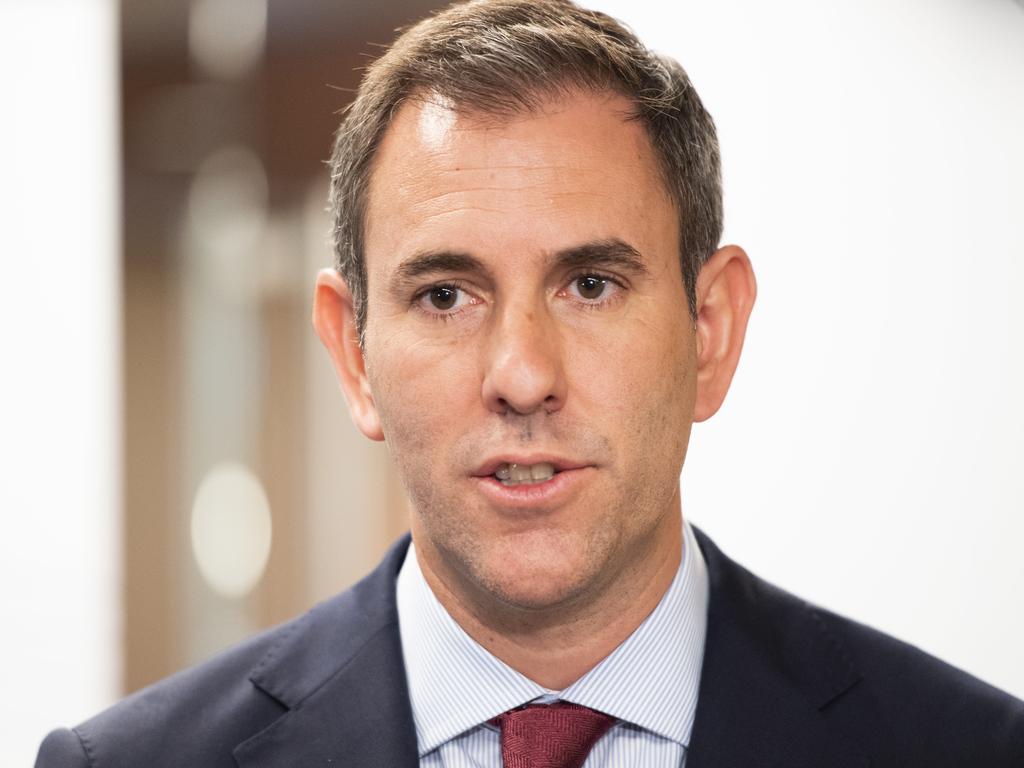Jim Chalmers playing the long game with intricate makeover of financial food chain


Eight months after Anthony Albanese won an election off a third of the popular vote and a safety-first, minimalist platform, Labor’s approach to governing is becoming clearer and riskier.
Intervention is back, as nations confront the “polycrisis” of rampant inflation, Covid-19, social dislocation, food shortages, climate change and war in Ukraine. Globalisation is disintegrating and the openness to trade and investment that has been the bedrock of higher living standards for decades is under strain.
Here, the Albanese government is empowering trade unions, boosting social welfare, reviving industry policy, putting clamps on gas producers, and using regulation and taxpayer funds to accelerate the transition to renewable energy.
Undoing the premium growth engine, which is not without its faults, may even be reckless given our inheritance. Yet Labor appears determined to break with the past.
The Prime Minister is a remade and improved political figure, a champion of the activist state, especially when it is harnessed to open doors of opportunity and promote income equality.
The Treasurer carries the centrist legacy of heroes Bob Hawke and Paul Keating, Labor’s most successful disrupters, yet in his telling in a new essay today’s challenges demand a values-infused capitalism and fresh thinking.
While his striving, eloquence and hunger for knowledge may not fit the class-warrior stereotype, Chalmers aims to be the pivotal figure in what he proposes as a practical transformation to a fairer, more sustainable and stable democracy.
Old-school Albo is 60 in March; the same day, Labor’s coming man will be 45.
Inevitably the Treasurer’s blueprint invites speculation about ambition and destiny. It’s tempting to think of Chalmers at the nation’s helm: everything everywhere all at once.
Because of the fiscal constraint – deficits into the next decade – Chalmers needs partnerships at every level to make it work. He’ll start at the top of the financial food chain, trying to get co-investment in housing, clean energy and social services; engaging impact investors, chasing values as well as value; and firing up grassroots workers and volunteers.
This means Chalmers will be putting government at the centre of how key markets operate: sometimes it will be gentle, other times it will be brutal, messy and (hopefully) short, as in the gas play. Labor’s foray cuts into some of the territory the Greens have been exploiting on the progressive side, so the new narrative also has electoral undertones.
The Treasurer clearly has his eye on the long game. He knows he’ll need to bend, not break, institutions to impose values capitalism on our shores, including key actors such as Big Super and the official family of economic advisers whose professional religion is free market orthodox, capital F, capital M.
Plainly, crafting a manifesto is easier than executing it. Even explaining this intricate makeover will take all of Chalmers’ talents to bring voters on a radical journey that will require faith, resilience and patience.
Is Australia ready?







Jim Chalmers believes in the genius of the market, but not so much that he’ll cede the levers of power to the caprice of supply, demand and the animal spirits of capitalism.